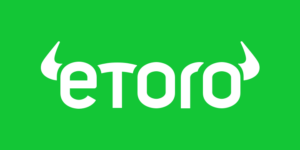Introduction – What is Fintech?

Financial technology or Fintech for short aims to compete with traditional financial methods in the delivery of financial services.
It is a developing industry that uses technology to improve financial activities. Financial technology firms include both start-ups and established financial institutions. Fintech technologies include the use of smartphones for mobile banking, small business loan applications, investing, various borrowing services, and cryptocurrency. The term “Fintech” refers to a new financial industry that uses technology and software systems to improve financial activities/experiences.
As traditional banks adapt to new demands, fintech continues to disrupt the industry with innovations like blockchain, digital lending and mobile payments. Consumers now expect financial services to be seamless and secure—often without ever stepping into a bank. With the rapid growth of fintech, the financial landscape is evolving to offer greater convenience and efficiency for everyone.
Types of Fintech systems:

Fintech is a very large area that encompasses a range of different systems including the following:
- General investment platforms: This may include the purchasing of stocks, futures or commodities such as Gold or Silver.
- Stock trading platforms streamline securities transactions by connecting investors directly to capital markets through intuitive web and mobile interfaces. Key features include real-time order execution, access to market data, comprehensive portfolio management, and risk analytics. Examples: electronic brokerage platforms and digital investment services.
- Forex trading software enables the buying and selling of currencies through online platforms, offering live pricing, charting tools, automated order types, and risk controls. These solutions often incorporate financial automation for high-volume trading and multi-currency support.
- Algorithmic and high-frequency trading systems utilize pre-programmed algorithms and low-latency infrastructure to execute trades at sub-second speeds. They analyze large datasets for market patterns, employing techniques like statistical arbitrage and quantitative strategies. Features include direct market access (DMA), co-location, and order routing optimization.
- Risk management: Every investment involves some level of risk, so risk management systems are used to collect data and assist in determining whether a transaction/investment is promising or should be avoided.
- Banking services: Fintech solutions can help facilitate banking services such as lending money, foreign exchange and more.
- Neobanks: These are alternatives to traditional banks and are “digital first”.
Technologies leveraged

Cryptocurrency
![]()
Cryptocurrency is a digital asset that functions like a traditional currency however is decentralized and cannot be controlled by a central body like a traditional bank. Fintech solutions working with Cryptocurrencies like BitCoin, Ethereum, and others contain features such as the ability to send and receive funds or make investments and track the price of a currency.
Since the early days of Crypto and rise of Bitcoin the technology has become more mainstream and from 2017 onward there were efforts to simplify the purchasing and management of these assets by various companies offering Crypto exchanges.
This technology, exemplified by Bitcoin and Ethereum, enables direct peer-to-peer transactions without central bank control. Fintech solutions built around crypto offer features like sending/receiving funds, investment tracking, staking, lending, and integration with Decentralized Finance (DeFi) applications, all underpinned by strong security protocols.
The mainstream adoption of cryptocurrency significantly accelerated from 2017 with the rise of cryptocurrency exchanges. These platforms, including Centralized Exchanges (CEXs), Decentralized Exchanges (DEXs), and hybrid models, simplified the process of buying, selling, and trading digital assets by providing liquidity, diverse trading pairs, and various order types. This increased accessibility has been crucial in moving crypto from a niche concept to a more prominent role in global finance.
The global expansion of cryptocurrency has necessitated the emergence of regionally tailored fintech solutions, addressing specific regulatory landscapes, local currency support, and user preferences. For instance, New Zealanders have access to quality crypto exchanges that cater to their unique market, offering NZD pairings and compliant services. Similarly, individuals and businesses operating in Dubai and the United Arab Emirates benefit from recommended crypto exchanges that navigate the region’s burgeoning crypto ecosystem, often with specific licensing from authorities like VARA. In Norway, where cryptocurrency adoption is significant, various exchanges, including those with robust regulatory compliance, provide trading and investment opportunities. For users in Hong Kong, a global financial hub, a range of cryptocurrency apps and platforms offer sophisticated trading tools and secure asset management. Taiwanese residents can explore various cryptocurrency and trading software, some of which prioritize ease of use and local banking integrations.
Singapore, renowned for its progressive fintech environment, boasts a curated summary of some of the best Cryptocurrency apps & platforms for Singapore users, emphasizing security and regulatory adherence. India, a rapidly growing market, has numerous top-rated Cryptocurrency exchanges & applications for India, many offering INR deposit and withdrawal options and catering to a diverse user base. South Africans also have a selection of reputable crypto exchanges, with options supporting ZAR and providing various investment avenues. Finally, in Saudi Arabia and Canada, users can find some of the best Cryptocurrency exchanges/apps for Saudi Arabia and the best Cryptocurrency exchanges/apps for Canadians respectively, ensuring access to a global digital asset market while adhering to regional financial guidelines. This regional diversification underscores the increasing maturity of the cryptocurrency market, with platforms continually adapting to serve a global clientele with localized, secure, and user-friendly solutions.
BlockChain
![]()
A Blockchain is a growing list of records, called blocks, that are linked together using cryptography. Each block contains a cryptographic hash of the previous block and transaction data. Once recorded, the data in any given block cannot be altered retroactively without altering all subsequent blocks.
Blockchain technology is used alongside Cryptocurrency and Fintech solutions often leverage it to keep track of transactions and verify their integrity. Banks are interested in this technology because it has the potential to improve the speed of back-office settlement systems in various financial services.\
Cryptocurrency and Blockchain-Based Solutions
Cryptocurrency wallets store digital assets. Hot wallets operate online for accessibility, while cold wallets store assets offline for enhanced security.
Crypto exchanges include centralized exchanges (CEXs) that facilitate asset trading via order books, and decentralized exchanges (DEXs) using blockchain protocols for peer-to-peer trading without intermediaries.
DeFi platforms implement decentralized finance applications on public blockchains. Examples: automated lending markets, liquidity pools, and decentralized swaps.
Smart contracts and decentralization automate agreements on blockchain networks. Code executes terms transparently and without third-party intervention, reducing settlement times and operational risk.
AI (Artificial Intelligence) & Machine Learning
![]()
The use of Artificial Intelligence has enabled Fintech solutions to learn from data over time and use it to make predictions for the future with similar behavior/traits to a human mind and its reasoning behind decisions. AI along with machine learning can help software systems become more accurate over time and learn from mistakes as more data is processed.
Automation
![]()
By leveraging automation in general Fintech software can speed up traditional operations in the finance sector such as reporting, responding to questions, handling support requests, and detecting fraud more efficiently.
Web-based applications & websites
![]()
Websites and web applications can be used to market a Fintech or financial services company to potential clients or even offer functionality such as online trading, interactive content, and options to gather live data on stocks or other investments.
Notable platforms in the space
PayPal
![]()
With it’s roots back in 1998 PayPal was one of the first major successful consumer payment platforms that gained prominence and is still considered a major player in the space. PayPal is used almost everywhere from eCommerce websites to buying and selling platforms and provides a safe way to transact money online.
eToro
Established in Tel Aviv in 2007, eToro stands as an Israeli pioneer in the multi-asset investment and social trading arena, delivering a suite of financial services. Its core innovation lies in empowering users through social trading functionalities, notably its renowned CopyTrader feature. While its main base remains in Central Israel, eToro has cultivated a significant international presence with satellite offices spanning Cyprus, the UK, the US, Australia, Germany, and the UAE. By the close of September 2024, the platform had amassed a considerable user base of 38 million registered individuals, with over 3.5 million actively funded accounts.
Following a previous attempt at a public listing through a SPAC merger that faltered in 2021-2022, eToro successfully navigated its path to becoming a publicly traded entity. On May 14, 2025, the company officially commenced trading on the Nasdaq exchange under the ticker symbol “ETOR,” achieving an impressive valuation of $5.5 billion as of early 2025. Throughout its trajectory, eToro has consistently broadened its investment product offerings, now encompassing stocks, Contracts for Difference (CFDs), and a diverse array of cryptocurrencies. This expansion has been complemented by strategic collaborations and a commitment to operating within robust regulatory frameworks across numerous global jurisdictions.
Beyond its foundational social trading model, eToro facilitates diverse trading strategies, allowing users to engage with a wide spectrum of financial instruments. Stock trading on eToro involves directly investing in shares of companies, giving traders ownership of underlying assets. This traditional approach to market participation allows for long-term portfolio building, although eToro also supports fractional share ownership for accessibility. CFDs, or Contracts for Difference, offer a leveraged way to speculate on price movements of various assets—including equities, commodities like gold trading, and currencies—without owning the underlying asset. This derivative instrument enables traders to profit from both rising (going long) and falling (going short) markets, significantly amplifying potential returns or losses due to the inherent leverage. Day trading, characterized by opening and closing positions within the same trading day to capitalize on short-term price fluctuations, is also widely practiced on eToro, particularly for highly volatile assets like Forex pairs and cryptocurrencies.
For Canadian users wanting to get started with trading such as Forex, Stocks and more, eToro presents itself as a regulated option among others like Fusion Markets and AvaTrade. Similarly, for New Zealand customers wanting to trade Foreign currencies, stocks and other investments, platforms such as BlackBull Markets and CMC Markets are prominent, though eToro currently offers a more limited scope of services there. For Australians looking for a collection of some of the best day trading platforms, eToro’s social trading features and user-friendly design make it a compelling choice alongside others like Pepperstone and IC Markets. When considering Tips to choosing quality CFD trading/investment software in Dubai/UAE, key factors include assessing regulatory compliance, the availability of a demo account for practice, the breadth of market instruments offered (e.g., commodities, indices, Forex), a user-friendly interface, fast order execution, robust risk management tools like stop-loss orders, and transparent fee structures. eToro strives to provide a comprehensive trading ecosystem that caters to both novice and experienced traders across these various trading styles and global regions.
Access to the Forex market is global, with many brokers serving clients in various countries while adhering to local financial regulations. This includes countries like Forex brokers Sweden and Forex brokers Denmark, where traders can engage with the currency markets. In highly regulated financial hubs such as Forex brokers Switzerland and Forex brokers Singapore, rigorous oversight by bodies like FINMA and MAS ensures a secure trading environment. Even in regions like Forex brokers Qatar and Forex brokers Kuwait, where local CFD regulations are still evolving, many traders opt for international brokers who are regulated in established jurisdictions. Furthermore, the Forex brokers UK and Forex brokers South Africa are vibrant, with numerous brokers operating under the supervision of regulators like the FCA in the United Kingdom, providing a wide array of options for traders in these regions.
Prospa

Originating in Sydney, New South Wales, Prospa emerged in 2011 through the collaborative efforts of founders Beau Bertoli and Greg Moshal. Their vision was to address the critical gap in traditional bank financing, which often left Australian small and medium-sized enterprises (SMEs) grappling with cash flow challenges. The company steadily grew, securing a notable A$25 million investment from AirTree in 2017, which propelled its valuation to an impressive A$235 million. The following year, Prospa marked a significant milestone by listing on the Australian Securities Exchange, successfully raising A$110 million in its initial public offering. Expanding its reach, Prospa launched operations in New Zealand in 2019, further solidifying its presence across the Tasman. By 2022, the fintech powerhouse had achieved a remarkable lending milestone, disbursing over $3 billion to support small businesses. Most recently, in 2024, a consortium spearheaded by Salter Brothers Tech Fund made a strategic move, acquiring a minority stake for $74 million as part of a transaction to take Prospa private.
Prospa’s core business revolves around providing essential financial solutions to SMEs in both Australia and New Zealand, offering business loans and lines of credit. These offerings range from A$5,000 to A$500,000, with flexible repayment terms extending up to five years. A key differentiator for Prospa lies in its advanced technology, particularly its Credit Decision Engine. This sophisticated system meticulously analyzes over 450 data points, predominantly from external sources, to swiftly assess the creditworthiness of applicants. This technological prowess enables Prospa to typically provide loan decisions on the very same day, with funds often disbursed within mere hours of document signing. Furthermore, Prospa ensures accessibility through its user-friendly online web portal and dedicated mobile applications available on both iOS and Android platforms. Demonstrating a continued commitment to innovation, Prospa also introduced Prospa IQ in 2024, an intuitive tool designed to empower brokers with the ability to generate instant loan quotes.
For Sydney businesses wanting to borrow money (unsecured and secured options), the financial landscape offers a wealth of opportunities through both direct lenders and specialist commercial loan brokers. These intermediaries play a crucial role in demystifying the often-complex world of business finance, helping companies identify the most suitable loan products. Whether a firm requires unsecured business loans, which offer rapid access to capital without requiring asset collateral, or secured business loans, typically offering more competitive rates and higher borrowing capacities in exchange for an asset pledge, brokers can effectively tailor solutions. They leverage extensive networks of financial institutions, from traditional banks to agile fintech lenders, to secure optimal terms for their clients.
This commitment to providing flexible business financing extends far beyond the Sydney metropolitan area. Enterprises seeking the best business loans/brokers Melbourne, Victoria, will discover a highly competitive market brimming with experts in working capital solutions, equipment finance, and more structured commercial mortgages. Similarly, throughout Australia’s diverse economic regions, the search for robust funding sources is well-supported. Businesses in the nation’s capital can find the best business & small business loan providers & brokers in Canberra, while Queensland’s dynamic growth areas benefit from similar expertise in the Gold Coast and Logan, Queensland. South Australia’s commercial sector also has access to the best business loans in Adelaide, South Australia, ensuring local enterprises can pursue expansion or manage cash flow effectively. Even in regional centers like Wagga Wagga New South Wales and Toowoomba, Queensland, and further afield, the best business loans in Shepparton and business loan brokers in Bendigo are readily available through dedicated financial advisors. For Perth businesses, there are leading best small business loan/financing providers who understand the unique market dynamics of Western Australia. These brokers and lenders focus on streamlining the application process, often utilizing advanced credit assessment tools to provide swift decisions and fund disbursements, thereby empowering businesses across the country to seize opportunities and foster sustainable growth.
Stripe
![]()
Stripe is another major payment gateway based out of San Francisco in the USA and focuses on developer integration and as such is ubiquitous and integrated into thousands of buyer/seller marketplaces and subscription payment platforms to automatically handle payments across dozens of currencies and support different types of credit cards.
Payoneer
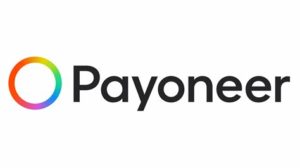
Payoneer is another popular platform focused on international money transfers and is common in countries where PayPal or others don’t currently operate such as Pakistan at the time of writing. Payoneer allows individuals and businesses to send and receive money between them funded by bank account transfer or credit card and quickly have the funds received by the other person or business.
Binance
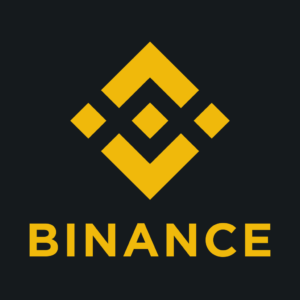
When it comes to Crypto trading applications and means of buying, selling and storing Crypto Binance is a significant player in the space which enables people and businesses to buy/sell Cryptocurrencies as well as NFT assets and deposit money in different currencies like USD and Euro.
Binance sponsored the Africa Cup of Nations in 2021 and is supporting crypto education across the continent. Binance spent $500 million in Elon Musk’s acquisition of Twitter in October 2022, forming a team to examine the potential of blockchain and cryptocurrency. Binance offered to buy FTX’s non-US operations in November 2022 to address liquidity challenges, but backed out owing to worries over the company’s business practices. Binance purchased Sakura Exchange in November 2022, allowing it to re-enter the Japanese crypto industry.
Related guide: List of platforms to help you accept Cryptocurrency payments on your website
Wise (formally TransferWise)
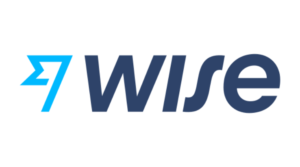
Wise (formally TransferWise) is another popular payment application with its roots originally in Estonia where it was founded. Similarly to Payoneer it is designed for quick peer-to-peer payments between individuals and businesses but focuses on high speed and has lower fees compared to some other platforms.
Wise provides three products: Wise Account, Wise Business, and Wise Platform. While not a bank, Wise Account enables consumers to keep their funds while sending, receiving, and spending. Wise’s collaboration with banks allows customers to earn interest and receive FDIC insurance on deposits of up to $250,000. Wise Business facilitates cross-border money transfers, while Wise Platform enables banks and enterprises to provide fast, inexpensive, and transparent ways for their clients to manage their money across borders.
Cashapp

Cash App (formerly Square Cash) is a mobile payment service available in the United States and the United Kingdom that allows users to transfer money to one another via a mobile phone app (for a 1.5% fee for immediate transfer).
In September 2021, the service reported 70 million annual transacting users and a gross profit of US$1.8 billion.
Square

Square is another popular payment gateway mostly used in POS systems but also operates as a standalone payment application enabling businesses to accept and pay with different types of credit cards. In 2024, Square holds the top spot in the U.S. point-of-sale (POS) market, empowering four million sellers and facilitating $228 billion in annual transactions. This robust, cloud-based platform combines physical payment devices with comprehensive software. Beyond payment processing,
Square provides a wide array of business support features, such as e-commerce capabilities, inventory tracking, customer appointment scheduling, payroll, shift management, and access to financial services like banking and business loans. Globally, Square operates in the United States, Australia, Canada, France, Japan, the Republic of Ireland, Spain, and the U.K.
Venmo

Venmo is an American mobile payment service that was founded in 2009 and is now owned by PayPal. Venmo was designed for friends and family who want to split bills, such as for movies, dinner, rent, or event tickets, among other things. Account holders can transfer funds to others using a mobile phone app; both the sender and the receiver must be US citizens.
Users of Venmo, a small social network, can watch how other people who are sending money to one another interact with amusing emoticons. The company handled $230 billion in transactions and earned $850 million in revenue in 2021.
Revolut

Company Background
Revolut Group Holdings Ltd, operating as Revolut, is a UK-based multinational financial technology company and neobank offering personal and business banking solutions through a mobile-first approach. Founded in July 2015 by Nikolay Storonsky and Vlad Yatsenko, Revolut has grown into a major global player in digital finance, with services available in over 48 countries and a customer base exceeding 52 million individuals as of 2024.
Services and Features
Revolut’s product suite includes free and premium banking services, international and domestic transfers, debit and credit cards, stock and crypto trading, savings accounts, and personal loans. These services are primarily accessed through its mobile app, which supports multiple currencies and is designed for both retail and business users.
Valuation and Financials
By mid-2024, Revolut reached a valuation of $45 billion, making it Europe’s most valuable private tech firm. The company reported $4 billion in revenue and $1.4 billion in pre-tax profits for the year.
Timeline and Key Milestones
2015–2017: Launch and Early Growth
Revolut began in 2015 with a travel-focused prepaid card and currency exchange platform. Initially based at Level39 in London, the company quickly raised £1.5 million in seed funding, followed by a Series A that valued it at £42 million. By 2017, Revolut had introduced “Revolut Business,” targeting companies with multi-currency accounts, and raised $66 million in Series B funding to fuel international expansion.
2017–2022: Regulatory Licensing and Global Expansion
In 2018, Revolut secured an EU banking license through the Bank of Lithuania, enabling it to accept deposits and offer credit. Stock trading was introduced in 2019. The company expanded beyond Europe into Australia, Singapore, the U.S., and Japan. It achieved breakeven by late 2020 and reached a $33 billion valuation after a major funding round in 2021.
2022–2024: Banking Licenses, New Services, and Challenges
Revolut began operating as a full bank in 10 additional European nations in 2022. However, it faced setbacks including a $20 million fraud loss due to a U.S. payment system flaw and a cybersecurity incident affecting a small number of customers. Regulatory approval in the UK came with restrictions under a phased “mobilization” process. Meanwhile, the company continued to expand its crypto and stock trading features, launched a premium subscription tier, and crossed 50 million registered users by the end of 2024.
2025 and Beyond: Strategic Investment and Controversies
In 2025, Revolut revealed plans to invest over $1 billion into its French operations, selecting Paris as its Western European base. Despite impressive growth, the firm topped the UK fintech sector in customer complaints and fraud-related issues. It also faced scrutiny from local banks in Portugal regarding market practices.
Funding Overview
Since inception, Revolut has raised approximately $1.7 billion through multiple funding rounds, including a major $800 million Series E round in 2021 backed by SoftBank and Tiger Global. The company achieved unicorn status in 2018 and has consistently attracted top-tier investors, further boosting its valuation with a secondary share sale in 2024.
Products and Services
Revolut’s offerings include current accounts in GBP and EUR, international transfers, multicurrency cards, cryptocurrency exchange, commission-free stock trading, and a business banking platform. Its mobile app enables users to transact in 120 currencies and transfer funds in 36 currencies. Although users can trade cryptocurrencies, deposits and direct crypto spending are restricted.
Security and Compliance
Revolut adheres to global security standards such as PCI DSS. Customer deposits in Europe are protected up to €100,000 via Lithuania’s deposit insurance scheme. In the UK, safeguarded funds are held in partner banks until Revolut fully activates its banking license under the FSCS.
Concerns over the technology
In July 2018, the Trump Administration issued a policy statement allowing FinTech companies to apply to the federal Office of the Comptroller of the Currency for special-purpose national bank charters. Another issue that regulators are concerned about is data security, which is concerned because of the threat of hacking as well as the need to protect sensitive consumer and corporate financial data.
Fintech companies in the European Union are required to follow data protection laws such as GDPR. Any data breach, no matter how minor, can result in direct liability to a company depending on the laws of the country.
The online financial sector is also becoming a more popular target for distributed denial of service (DDoS) extortion attacks and other types of intrusions like Phishing.
Other types of financial technologies

Wealth Management and Personal Finance Tools
Robo-advisors offer algorithm-driven investment management, providing portfolio allocation and rebalancing based on risk tolerance and financial goals.
Budgeting and expense tracking apps facilitate real-time financial monitoring. Features: transaction categorization, goal setting, and spending alerts.
Retirement and savings calculators project long-term outcomes based on personalized parameters such as age, income, and asset mix, promoting digital financial planning.
Insurtech (Insurance Technology)
Digital insurance platforms modernize policy purchasing, administration, and claims, delivering instant quotes, digital KYC, and 24/7 servicing.
Usage-based insurance (UBI) leverages IoT and telematics to price premiums dynamically, based on real-time policyholder behaviors (e.g., driving habits or health monitoring).
AI in claims processing and fraud prevention deploys image recognition, language processing, and anomaly detection to accelerate settlements and flag suspicious activities.
RegTech (Regulatory Technology)
Tools for KYC/AML compliance automate customer verification and monitor transactions for anti-money laundering (AML) policy adherence.
Risk monitoring and reporting systems analyze transactional trends and alert financial institutions to regulatory or operational breaches.
Regulatory data management and automation improves accuracy and timeliness by integrating multiple compliance workflows into unified dashboards.
Enterprise Fintech Solutions
Treasury management software automates cash flow forecasting, liquidity management, and real-time payments for corporates.
ERP finance modules integrate accounting, procurement, and budgeting, delivering a unified view of business finances.
Financial planning and analysis (FP&A) systems enable scenario modeling, consolidation, and advanced analytics for strategic corporate decision-making.
Future of Fintech
Fintech remains dynamic, driven by adoption of artificial intelligence, distributed ledger technology, and real-time analytics. These trends continually reshape global digital finance, increasing automation, security, and financial inclusion while supporting more personalized and efficient financial ecosystems.
The Evolution and Importance of Fintech
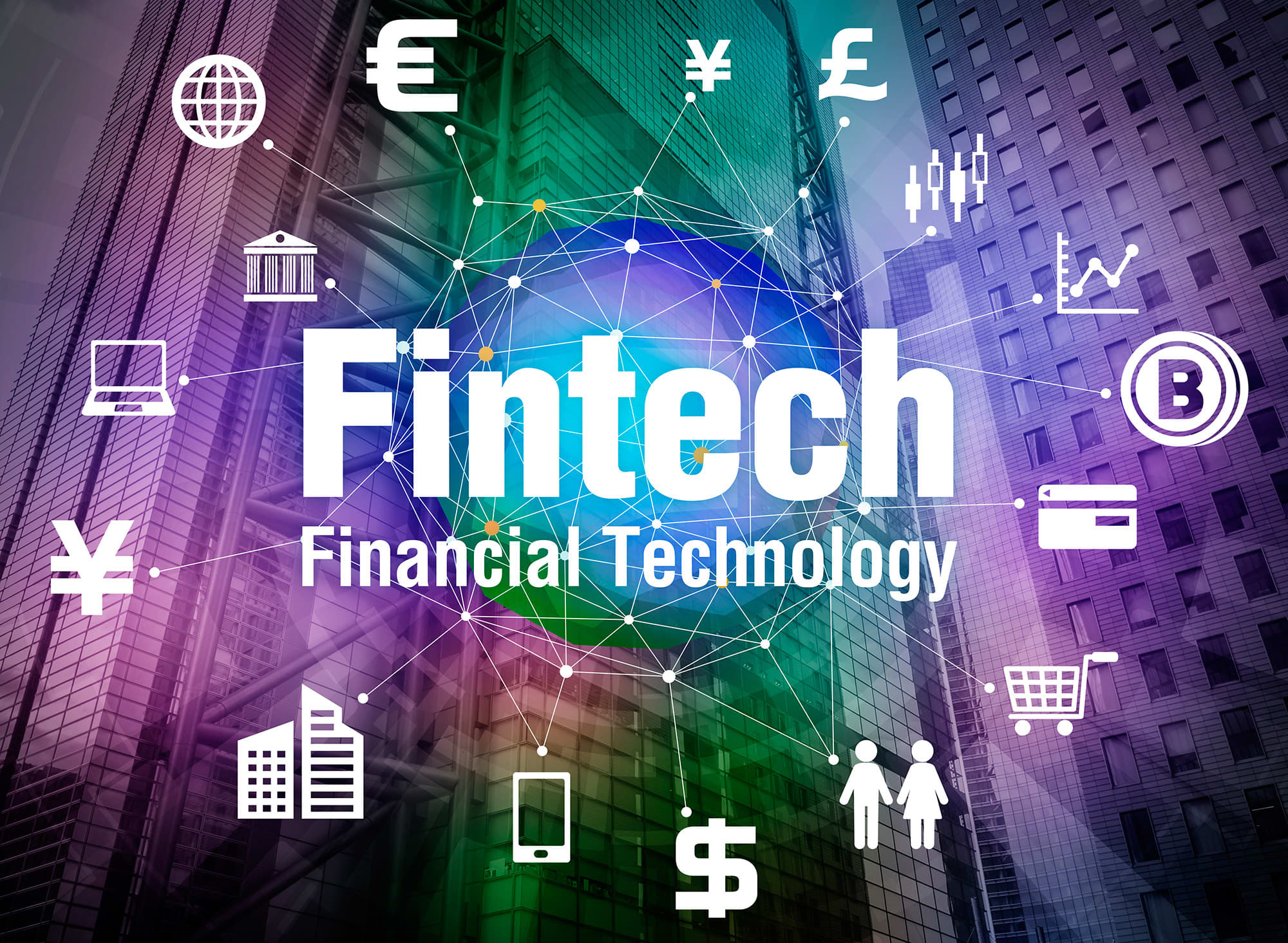
Fintech advanced from internal financial institution tools to become a consumer-centered catalyst for digital finance. Financial technology first focused on improving institutional operations but shifted toward platforms and apps used directly by end-users. For example, banking migrated from local branches to mobile-first experiences and personal finance apps, while brokerages built retail trading platforms offering algorithmic tools once limited to institutional desks.
Digital finance solutions brought transformative change across retail banking, payment processing, lending, investment management, and insurance. Adoption rates surged—according to EY’s 2019 Global FinTech Adoption Index, two-thirds of consumers globally used at least two fintech services. Payment apps, peer-to-peer lending platforms, and robo-advisors expanded access to financial services, particularly for underserved segments. Innovations also drove competition, lowered transaction fees, and personalized offerings by leveraging data analytics and machine learning.
Fintech innovation increased financial inclusion and operational agility. For instance, Asia-Pacific’s digital lending market grew rapidly as smartphone penetration and real-time KYC technology linked borrowers and lenders without traditional banking infrastructure. Embedded finance and Banking-as-a-Service (BaaS) let retail and ecommerce brands deploy banking features using APIs, blurring industry lines and fueling modular digital transformation.
Operational and regulatory impacts remain significant. Automation and real-time analytics reduced costs and improved risk monitoring for financial firms. Regulatory technology (RegTech) introduced automated compliance tools for KYC (Know Your Customer), AML (Anti-Money Laundering), and transaction reporting, helping manage evolving policy and oversight requirements as the fintech ecosystem expanded.
Industry disruptors draw on blockchain for tokenization and decentralized ledgers, while insurtech and wealth tech leverage AI and behavioral analytics for faster claims management and tailored investment advice. Fintech now shapes ecosystem paradigms, supporting not just technological efficiency but the continuous adaptation to consumer demand and regulatory expectations. Advances in mobile technology, open banking, and API interoperability have underpinned this rapid, ongoing evolution.
Conclusion
We hope you found this page useful; if so, please share it with your friends or anyone else you think would benefit.
AGR Technology is an Australian-based digital agency that offers value-added services to other businesses of all sizes, including Web Hosting, Software Development, Online Marketing, and more all across Australia and internationally.
Key Takeaways
- Fintech combines advanced technology with financial services to make banking, payments, lending, and investing faster, more efficient, and accessible to wider audiences.
- Key fintech innovations include mobile banking, payment gateways, peer-to-peer lending, robo-advisors, insurtech, regtech, and blockchain solutions like cryptocurrencies and decentralized finance (DeFi).
- Core technologies powering fintech are cloud computing, blockchain, artificial intelligence (AI), machine learning, and mobile platforms, enhancing automation, security, and personalization.
- Fintech drives financial inclusion, cost savings, improved security, and greater consumer choice, but also introduces challenges around regulatory compliance, data privacy, and system reliability.
- The future of fintech will focus on AI-driven automation, embedded finance through open APIs, continued expansion of DeFi, automated compliance (RegTech), and advanced cybersecurity measures.
Frequently Asked Questions
What is fintech?
Fintech, short for “financial technology,” refers to the use of innovative software and digital platforms to improve, automate, and streamline financial services such as banking, payments, investing, and lending.
How is fintech changing traditional banking?
Fintech is making banking more efficient, secure, and accessible by introducing digital banking apps, automated lending, real-time payments, and personalized financial services, pushing traditional banks to modernize and adopt new technologies.
What are some common examples of fintech innovations?
Popular fintech innovations include mobile banking apps, digital wallets like Apple Pay, peer-to-peer lending platforms, robo-advisors for investing, and blockchain-based cryptocurrencies such as Bitcoin and Ethereum.
How does fintech improve financial inclusion?
Fintech provides easier access to financial services for unbanked and underbanked populations by offering mobile banking, microloans, and low-fee transactions, often without the need for traditional bank branches.
What technologies power fintech solutions?
Key technologies include artificial intelligence (AI), machine learning, blockchain, cloud computing, mobile apps, and advanced data analytics, all of which enable secure, scalable, and personalized financial products.
What is a neobank?
A neobank is a digital-only bank offering financial services through mobile apps or websites without physical branches, often providing lower fees and user-friendly interfaces compared to traditional banks.
What is RegTech and why is it important in fintech?
RegTech (regulatory technology) uses software to automate compliance, risk monitoring, and reporting, helping fintech companies meet regulatory requirements more efficiently and reduce the risk of penalties.
How safe are fintech platforms?
Most fintech providers use encryption, multi-factor authentication, and other advanced security measures. However, users should always verify credibility, read privacy policies, and practice good cybersecurity habits.
What are the main benefits of fintech?
Fintech brings greater convenience, faster transactions, reduced costs, expanded financial access, and personalized financial services, making money management easier for individuals and businesses.
Are there any challenges with fintech adoption?
Yes. Common challenges include regulatory complexities, data privacy concerns, technology gaps, system reliability, and the need for strong cybersecurity to protect sensitive financial information.
How does fintech use artificial intelligence (AI)?
Fintech uses AI for real-time analytics, personalized recommendations, fraud detection, risk assessment, and automating customer service, allowing for smarter, faster, and more secure financial services.
What is decentralized finance (DeFi)?
DeFi refers to blockchain-based financial systems that operate without central intermediaries, enabling peer-to-peer transactions, lending, and investing through decentralized applications (dApps).
How does blockchain impact fintech?
Blockchain brings transparency, security, and efficiency to financial transactions. It allows for secure digital payments, decentralized finance platforms, tokenization of assets, and reduces the risk of fraud.
What is embedded finance?
Embedded finance refers to the integration of financial services into non-financial apps or platforms, allowing users to access banking, lending, or payments directly within other everyday digital experiences.
Will fintech replace traditional banks?
Fintech is rapidly transforming the financial industry, but traditional banks continue to adapt by adopting fintech innovations and partnering with new fintech firms. Both are likely to coexist and evolve together.
Related entries from our tech glossary:
Staking pools – What are they?
Whitepapers for Crypto projects
Central Bank Digital Currencies
Explanation of distributed ledgers
What are Privacy Coins and how do they work?
What is Know Your Customer (KYC)?
Blockchain Explorer Definition
What is market analysis in the context of Cryptocurrencies?
What are Initial Exchange Offerings (IEOs)
Web3 Software Development Services
NFT Digital Marketing Services
(Tutorial) How to buy Cryptocurrency in Australia
Platforms to earn interest on your Cryptocurrency assets
How to buy Bitcoin or other Cryptocurrency assets online
Top stock market trading platforms Australia
How to pay overseas staff from Australia online
Guide to buying Etherium (Eth) in Australia
Net worth calculator – online tool
Mortgage affordability calculator – online tool
Top-rated Alternatives to Etoro for Australian CFD traders
Top Alternatives to Swyftx for Australian Crypto users
ICO Marketing Solutions to help brands capture more online reach
CMC Markets Alternatives for Australian end-users wanting to start trading
Coinspot alternatives platforms Australians wanting to get started with Cryptocurrencies
Services to help you recover lost Crypto from your devices
List of some top Etoro alternatives for Australian forex traders
What to look for when choosing a neobank app
Web3 Marketing Services By AGR Technology to help brands reach more users
Source(s)/Bibliography:
Commemorates 150-year history – Marcus by Goldman Sachs leverages technology and legacy of financial expertise in dynamic consumer finance platforms. (n.d.). Retrieved May 04, 2021, from https://www.goldmansachs.com/our-firm/history/moments/2016-marcus.html
Financial technology. (2021, May 04). Retrieved May 04, 2021, from https://en.wikipedia.org/wiki/Financial_technology
April 23, 2. (n.d.). Data security considerations for fintech companies. Retrieved May 04, 2021, from https://web.archive.org/web/20170905104224/https://www.bna.com/data-security-considerations-for-fintech-companies/
Katrina.Tuliao, CC BY 2.0 <https://creativecommons.org/licenses/by/2.0>, via Wikimedia Commons
Arnold, M. (2016, September 23). IBM in blockchain project with China UnionPay. Retrieved May 04, 2021, from https://www.ft.com/content/719f4e7e-80e1-11e6-bc52-0c7211ef3198
“Cash App” Wikipedia, 13 Jan. 2018, en.wikipedia.org/wiki/Cash_App. Accessed 28 Feb. 2023.
“Venmo” Wikipedia, 18 Apr. 2015, en.wikipedia.org/wiki/Venmo. Accessed 28 Feb. 2023.
The following icons are licensed under Creative Commons (Attribution 3.0 Unported)
www.iconfinder.com/icons/2890583/download/png/512. Accessed 28 Feb. 2023.
www.iconfinder.com/icons/2909601/download/png/512. Accessed 28 Feb. 2023.
www.iconfinder.com/icons/3287271/download/png/512. Accessed 28 Feb. 2023.
www.iconfinder.com/icons/7229171/download/png/512. Accessed 28 Feb. 2023.
www.iconfinder.com/icons/5355692/download/png/512. Accessed 28 Feb. 2023.
EdMercer, CC BY-SA 4.0, via Wikimedia Commons
“Wise (company)” Wikipedia, 1 Oct. 2012, en.wikipedia.org/wiki/Wise_(company). Accessed 21 May 2025.
Binance. Wikipedia. https://en.wikipedia.org/wiki/Binance. Published December 31, 2017. Accessed May 21, 2025.
“Square (financial services)” Wikipedia, 1 Feb. 2022, en.wikipedia.org/wiki/Square_(financial_services). Accessed 21 May 2025.
“eToro” Wikipedia, 17 June 2009, en.wikipedia.org/wiki/EToro. Accessed 21 May 2025.
“Prospa (company)” Wikipedia, 28 Feb. 2025, en.wikipedia.org/wiki/Prospa_(company). Accessed 21 May 2025.
Jamie Smyth, Online lender Prospa challenges Australia’s big banks, (Apr. 10, 2018), https://www.ft.com/content/699e96f2-0a70-11e8-bacb-2958fde95e5e.
S. Drummond, “Westpac pilots SME lending with fintech Prospa”, 20-Nov.-2015. [Online]. Available: https://www.smh.com.au/business/small-business/westpac-pilots-sme-lending-with-fintech-prospa-20151119-gl32wg.html. [Accessed: 21-May-2025].
Utley, Madison. “Lender thrives in “underserviced” NZ market.” Australian Broker News. April 17, 2019. Accessed May 21, 2025. https://www.brokernews.com.au/news/breaking-news/lender-thrives-in-underserviced-nz-market-262239.aspx.
J. Smyth, (2018). Online lender Prospa challenges Australia’s big banks [Online]. Available at: https://www.ft.com/content/699e96f2-0a70-11e8-bacb-2958fde95e5e (Accessed: 21 May 2025).
(2016). Revolut [Online]. Wikipedia. Available at: https://en.wikipedia.org/wiki/Revolut (Accessed: 22 May 2025).
104204524-GettyImages-590595016.jpg (2000×1465) [Online]. Available at: https://image.cnbcfm.com/api/v1/image/104204524-GettyImages-590595016.jpg?v=1529473810 (Accessed: 22 May 2025).
![logo-new-23[1] logo-new-23[1]](https://cdn-ihdfn.nitrocdn.com/eZVJvoSTyVixkEUySRKiaseNtUlmgCyu/assets/images/optimized/rev-b7ced37/agrtech.com.au/wp-content/uploads/elementor/thumbs/logo-new-231-qad2sqbr9f0wlvza81xod18hkirbk9apc0elfhpco4.png)
